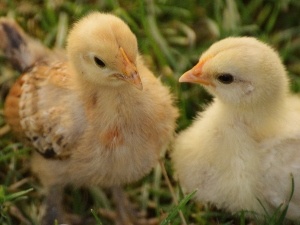
Incubating, and eventually, hatching chicks can be a nerve-wracking experience.
The chances of your chick hatching with no issues are quite high, but there are a variety of things that can cause your birds to not hatch, or, to develop issues while incubating. If you think that you’ve hatched a sticky chick then this article is for you
Table of Contents
Sticky chick:
Maintaining consistent and specific humidity and temperature settings on your incubator is important. If these settings are not maintained, then issues, like sticky chick, can develop.
What is sticky chick?
Sticky chick is what can happen to your birds if the eggs are incubated in an environment that has too much humidity. The bird will hatch with a sticky material on it
The optimum humidity setting for chicken eggs is 50 – 55 percent humidity.
Increasing your incubator’s humidity settings, during lockdown, helps chicks hatch easier, but too much humidity before the lockdown stage will cause sticky chick.
How does this happen?
Chicken eggs are porous, they let gasses and moisture in and out of the egg all the time, but too high levels of humidity in the incubator will cause moisture to build up in the egg.
Some moisture in the egg is normal, chicken eggs are able to shed moisture.
However, if there is too much humidity in the incubator, then too much moisture will enter into the egg and the egg will not be able to shed enough moisture leaving high amounts of moisture in the egg that should not be in there.
If there is too much fluid in the egg when the chick pips, then air will get into the egg and dry the fluids onto the bird causing sticky chick.
If a bird has sticky chick then the fluids will attach, dry, and become hard, like concrete, on the bird’s body making it hard to hatch.
If sticky chick happens, your chicks can also become fused to their shell.
The stronger chicks may be able to hatch, but the weaker chicks will simply not have enough strength to hatch. These birds will die if they don’t get help
Excessive moisture in the shell can also cause drowning. The fluids in the shell can clog the bird’s nostrils while in the egg and cause the chick to drown.
If the bird has dried material at its nostrils and beak when you open its shell up, then the bird likely drowned in the fluids.
There should ideally be no, or much less, moisture in the egg when the bird pips. This lack of moisture will allow the bird to hatch normally and with no issues
What to do:
If your chicks manage to hatch, and they have sticky chick, then you can give them a bath to loosen the material stuck to their feathers, a bath will help them get back to being fluffy.
You can fill a small container with some warm water and soak the chick in that container leaving their head above water.
Use your fingernail to gently scratch off the material stuck to the bird’s body, use a damp cloth and rub the material off of the bird’s head
How to prevent sticky chick:
You can keep sticky chick from happening in future by making sure that your incubator’s humidity settings are always kept between 50 and 55 percent.
Also, make sure that the incubator settings do not fluctuate up and down while incubating.
You can practice keeping the incubator settings maintained before you decide to incubate the eggs. This will help you see if there is anything wrong with the machine before you incubate the eggs.
Using a hygrometer in your bird’s incubator will be very helpful, this is a more precise way to measure the humidity levels in your incubator.
If you enjoyed this article then you may also be interested in other chicken related articles. Here are some articles that you may be interested in: Newly Hatched Chick Bleeding, Shrink Wrapped Chick, Baby Chick Swollen Abdomen, Baby Chick Not Growing Feathers, Chick Hatching With A Dry Membrane

